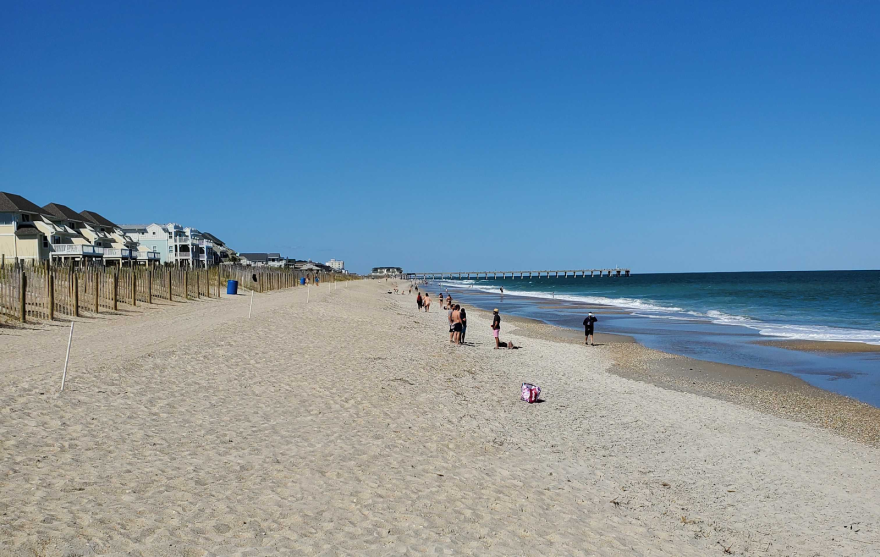North Carolina’s coastal counties draw millions of visitors each year with their scenic shorelines and festive events. Tourism is the primary economic driver in beach communities like Corolla, in Currituck County, but the coronavirus will prevent hotels, restaurants, vacation rentals and events from operating at full capacity this summer.
Currituck County commissioners have discussed reopening the beaches to visitors on May 22. Host Frank Stasio talks with Tameron Kugler, director of tourism and transportation for Currituck County, about the health and economic concerns faced by the county and its residents. Kugler details the challenges of following safety guidelines while reconnecting people to their livelihoods, as well as the need to soothe fears of both visitors and residents.
Stasio also speaks with Samantha Crisp, director of the Outer Banks History Center. Crisp talks about the concerns of community members about opening up too soon, and she describes how the community can learn from other historic crises.
Short Takes on the Past, Present and Future of Tourism at North Carolina Beaches
In the Past - High Tourism Numbers, High Dependency
“Our small little county can go from 12,000 residents during the regular season to up to 50,000 — changing out each and every week, sometimes up to 100,000. So when you have that kind of high season ... you really do depend on that. The sad thing is — that we're seeing now — is that it's also a very fragile economy.” -Tameron Kugler of Currituck County
In The Past - Resiliency Against Crises
“The one kind of great comparison that I can see to this sort of crisis that we're in is the Ash Wednesday Storm of 1962. That damaged something like 25% of the structures across the Outer Banks — hundreds of people without homes. Tons of businesses were destroyed. Roads were completely washed out. And we were actually able to come together as a community in that instance, and sort of get back together and reopen for the summer season, despite this very devastating thing that happened.” -Samantha Crisp of Outer Banks History Center
In the Present - Fear, Nervousness, Hope
“We don't have a lot of access to things that most larger cities have. So our grocery stores, for instance, it's very difficult to find necessary items or to keep them in stock. Our hospital doesn't have that many beds to accommodate any kind of major health crisis like this. I think a lot of tension is sort of manifesting itself as anger. And none of us really have been in the situation before, and it's all new to us. Overwhelmingly, we really want people to come back here.” -Samantha Crisp
In the Future - Staying Safe
“I believe we'll see different kinds of safety measures being put into place — things that we didn't see before: masks, gloves, sneeze guards, safety protocols.” -Tameron Kugler
In the Future - Keeping the Fun
“We actually have a big concert during Memorial Day weekend called the Memorial Day Beach Blast. Because of the uncertainty of what's going on and when things will reopen … we're actually going to livestream the concert without an audience. People can enjoy the concert from their living rooms and do some beach music dancing. So you know, we're improvising." -Tameron Kugler




